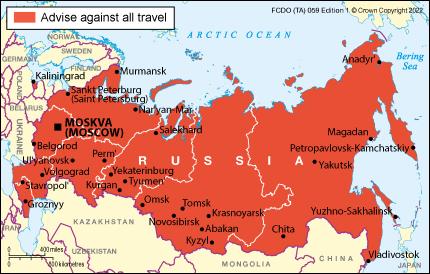Russia has announced that it has received “no signals” from Ukraine regarding the resumption of peace talks, as tensions escalate amid stern warnings from NATO. The latest developments come amid an ongoing conflict that has drawn extensive international attention, with diplomatic efforts appearing increasingly strained. Moscow’s statement underscores the challenges ahead for dialogue, even as Western military alliances continue to express their support for Kyiv and caution Russia against further escalation.
Russia reports lack of communication from Ukraine amid stalled peace negotiations
Russia has announced a notable silence from Kyiv as peace negotiations remain at a standstill. Despite repeated efforts from Moscow to engage in dialogue, officials report receiving no substantive responses or proposals from Ukraine. This communication gap has deepened the impasse, raising concerns over the future of diplomatic efforts aimed at resolving ongoing tensions. Moscow’s state representatives emphasized their continued readiness to negotiate but underscored frustration over what they described as “a lack of signals” from the Ukrainian side.
The situation is further complicated by recent warnings from NATO, which have intensified pressure on Russia amid the fragile geopolitical landscape. Key points influencing the stalled talks include:
- Increased military activity near contested areas, raising alarm within international circles.
- Diplomatic friction resulting from divergent demands and trust deficits.
- External influences affecting the negotiation dynamics, including sanctions and alliances.
| Stakeholder | Position | Recent Activity |
|---|---|---|
| Russia | Calls for negotiation, urges response | Statement on communication blackout |
| Ukraine | No official dialogue signals | Maintains defensive stance |
| Factor | Impact Level | Current Status |
|---|---|---|
| Troop Movements | High | Increasing |
| Diplomatic Talks | Medium | No Progress |
| Cybersecurity Threats | High | Rising |
Experts urge renewed diplomatic engagement and confidence-building measures to prevent further conflict
In light of escalating tensions, specialists emphasize the urgent need for revitalized diplomatic efforts to de-escalate the situation and foster mutual trust between the involved parties. Analysts contend that transparent communication channels and incremental confidence-building initiatives could serve as vital steps toward reducing misunderstandings and preventing unintended confrontations. Key recommended measures include:
- Regular dialogue exchanges between military and political representatives to clarify intentions and actions.
- Mutual implementation of ceasefire monitoring mechanisms to ensure adherence and accountability on all sides.
- Joint humanitarian projects aimed at easing civilian suffering and demonstrating goodwill.
- Confidence-building workshops facilitated by neutral international organizations to rebuild trust systematically.
Experts also highlight the importance of transparent and consistent communication to counteract misinformation and reduce the risk of aggressive posturing. A comparative overview of proposed confidence-building measures is summarized below:
| Measure | Expected Impact | Potential Challenges |
|---|---|---|
| Regular Dialogue Exchanges | Clarity in intentions | Mutual distrust |
| Ceasefire Monitoring | Reduced violations | Verification difficulties |
| Humanitarian Initiatives | Improved public perception | Logistical constraints |
| Confidence-Building Workshops | Enhanced trust | Political resistance |
Future Outlook
As tensions persist with no indication of Ukraine’s willingness to engage in peace negotiations, Russia continues to face mounting warnings from NATO. The standoff underscores the deepening geopolitical rift and the challenges ahead for diplomatic resolution in the region. Observers remain watchful for any shifts in dialogue that might pave the way toward de-escalation.




